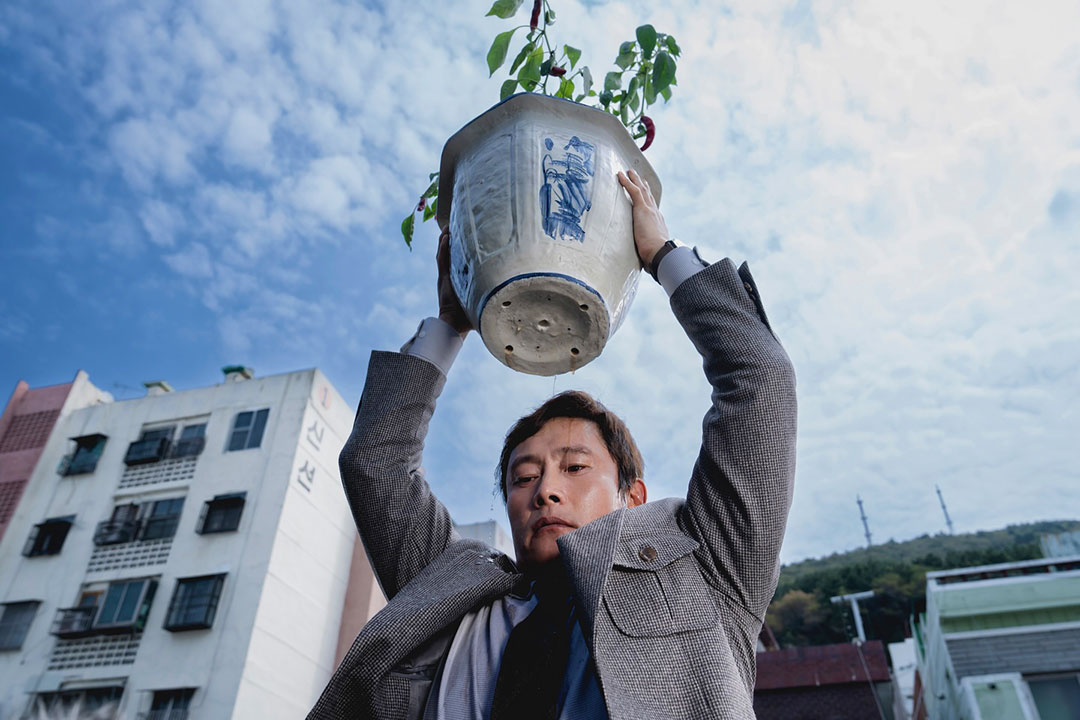Of monsters born from systemic cruelty

By Brontë H. Lacsamana, Reporter
Movie Review
No Other Choice
Directed by Park Chan-wook
MTRCB Rating: R-13
GREED and self-preservation can devolve into carnage, be it in a metaphorical sense as men chase the necessity of capital, or in a literal sense as they seek to actually kill.
This movie takes us through that endless rat race.
No Other Choice follows veteran paper mill manager Yoo Man-soo (played by Squid Game antagonist Lee Byung-hun), who is laid off and humiliated by a ruthless job market. As he gets more and more desperate to reclaim his dignity and continue providing a comfortable lifestyle for his family, he gradually resorts to shocking acts of violence.
At the heart of this thriller is Lee’s riveting performance as a man who is fully subsumed by the endless climb to a stable career. Director Park Chan-wook, known for his creative and sometimes even playfully manic visual style, depicts this character’s wins bleakly as if they were losses. This film is the type where you wouldn’t know whether to laugh, feel sad, or gape at the screen in anguish or horror. Lee is perfectly cast, able to nail this precarious balance between humor and cruelty.
Ultimately, Park’s latest film does have echoes of the devilish heartbreak in Decision to Leave, the elaborate blossoming in The Handmaiden, and the brutal horseplay in Oldboy, but it stands on a unique platform of its own, as a singularly cutthroat capitalist tragedy. No Other Choice lives and breathes the exasperation of a man who refuses all other choices presented to him to keep climbing the ladder he is on, even as the journey disfigures him into something unrecognizable.
Son Ye-jin as his beautiful and lively yet dutifully loyal wife, Lee Mi-ri, also stuns. She conveys the full spectrum of emotion of a woman who will stand firm with the man she has married, even as he crosses the point of no return. In the hands of Park, both her and Lee’s acting talents shine.
Park Chan-wook doesn’t disappoint, though his usual formal playfulness is reeled in, even somewhat streamlined here to serve the story — like a match-cut transition from a family hug to water rushing down a drain, a cross-dissolve imposition of a man plotting over a bonfire and his wife searching for clues to his strange behavior — not as flashy as stuff from his previous work, but effective all the same.
The details are impeccable, reflected by the physical and mental tough love that goes into the characters’ care for plants, and the kinds of forests that are built on the extremes of this brutal nature. It’s no wonder this is South Korea’s official entry to the 98th Academy Awards.
Fans of director Park’s work will be impressed by how No Other Choice juxtaposes regular family struggles with the amoral actions that individuals have to make to prosper in a world of corporate greed. Perhaps the most striking thing about this film is how bleak and empty the successful moments feel, despite the main character’s visible triumph after each step of his elaborate scheme.
In the beginning, Min-soo talks a big game about justice and togetherness and the necessity of manual labor in their line of work. The ending, without spoiling, puts him in the largest and emptiest of spaces, thanks to the advancements of AI that have broken down the very principles he used to espouse.
This is about a man losing his soul, bit by bit, as he learns to adapt to the systemic cruelty that seeks to snuff him out, until he eventually regurgitates the same phrase that the higher-ups down to the middlemen have said to him time and again: that he simply has no other choice.
No Other Choice is now showing in Philippine cinemas nationwide.



